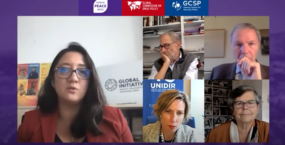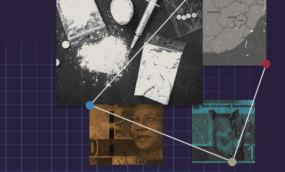Posted on 20 Dec 2016
Since the Global Commission launched its first report in 2011, a significant shift has taken place in global drug policy, both in terms of public discourse, scientific evidence and policy implementation. An increasing number of national or local authorities are experimenting different ways of regulating the cannabis market, while many more are implementing alternatives to criminalizing those who use drugs. Furthermore, opioid substitution therapy and harm reduction interventions, including needle and syringe exchange programs, supervised injecting facilities and drug testing services, are being scaled up—albeit not enough—as governments recognize the need for a health- and human rights-centered approach. This fundamental shift is hugely welcome. What we are witnessing is drug policy reform in action.
It is, however, time to challenge more fundamentally the way societies view drugs and those who use them. Psychoactive substances have accompanied humanity throughout its whole history. Some, such as alcohol or tobacco, are legally accepted in many regions of the world; others are recognized and prescribed as medicines, while what people refer to as “drugs” in the context of illicit consumption are prohibited by international treaties. The vast majority of people use all these substances in a reasonable way; there are some, however, who are at risk of harming their health and experiencing social and professional difficulties. But illicit drugs confront the users with much higher harms: they have to rely on the criminal market—whose interest is in making them dependent and turning the highest profit—and risk repressive measures. This combination of criminal offer and criminalization is particularly cruel and degrading for people who became addicted to drugs and those who use them to self-medicate physical or mental sufferings. Prohibition makes societies and governments blind to the great variety of reasons why people use drugs either in a controlled or a problematic way. It contributes to the discrimination and marginalization of drug users, considering them as undeserving of understanding and help, when they need treatment and social integration. Furthermore, it justifies criminalizing people who cause no harm to others and punishing those who are suffering. Prohibition also limits scientific research about the possible medical utility of illicit substances, and builds obstacles to the prescription of pain relief and palliative medication.
A punitive approach to drug control fundamentally undermines the relationship between the individual and the State, with so many of its citizens in breach of illogical drug laws. Unfortunately, most governments continue to share the objective, enshrined in the international drug control treaties, of a “drug-free world” or a “world free of drug abuse”. This goal is both naïve and dangerous. Naïve, in that prohibition has had little or no impact on rates of drug use, with the number of consumers increasing by almost 20 percent between 2006 and 2013 to 246 million people; dangerous, in that prohibition fuels mass incarceration and executions in contravention of international law, stokes the spread of blood-borne viruses, drives human rights abuses of those who use and supply drugs, and contributes to the drug-related deaths of nearly 200,000 people annually around the world. National governments must urgently liberate themselves from the constraints of this archaic and punitive framework.



